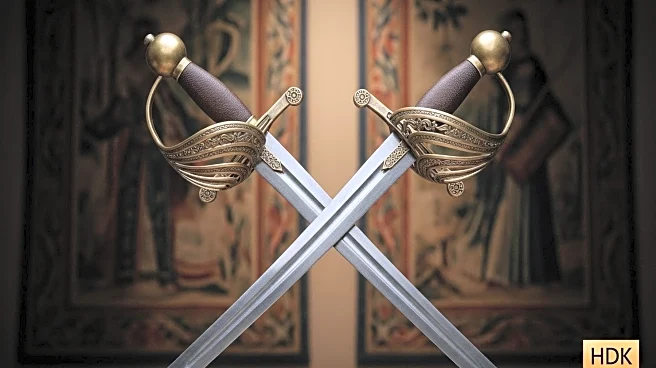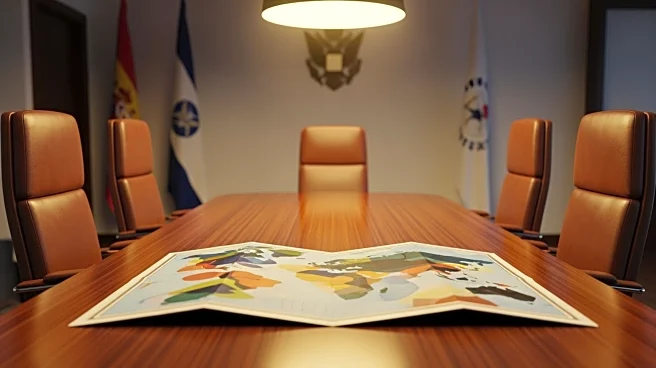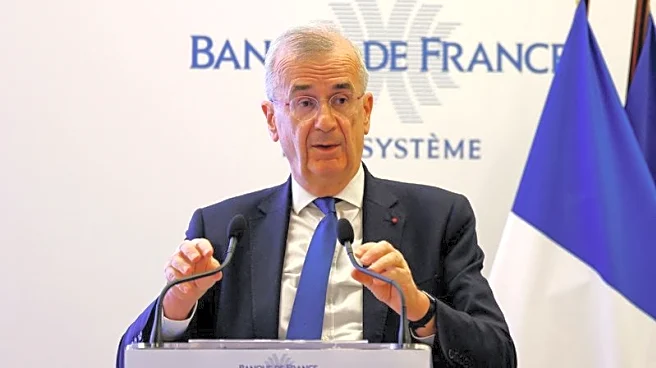What is the story about?
What's Happening?
President Donald Trump and Russian President Vladimir Putin have engaged in a rhetorical exchange, each labeling the other as a 'paper tiger.' This term, historically used by Mao Zedong to describe the United States, has resurfaced in the context of the ongoing conflict in Ukraine. Trump initially used the term to mock Russia's military capabilities, prompting a retort from Putin, who questioned NATO's strength. The exchange highlights the use of historical propaganda language in modern geopolitical discourse.
Why It's Important?
The use of the 'paper tiger' term by both leaders underscores the enduring influence of Cold War-era rhetoric in contemporary international relations. This exchange reflects the complex dynamics between the U.S., Russia, and China, with each nation navigating its strategic interests. The rhetorical battle also illustrates the challenges in diplomatic communication, where historical references can evoke strong nationalistic sentiments and complicate efforts for peaceful resolution.
Beyond the Headlines
The revival of Cold War-era language in modern politics raises questions about the effectiveness of historical propaganda in shaping public perception and policy. It also highlights the role of cultural and historical narratives in international diplomacy, where leaders may leverage past rhetoric to bolster domestic support or challenge adversaries. This development may prompt further analysis of how historical language influences current geopolitical strategies.

















